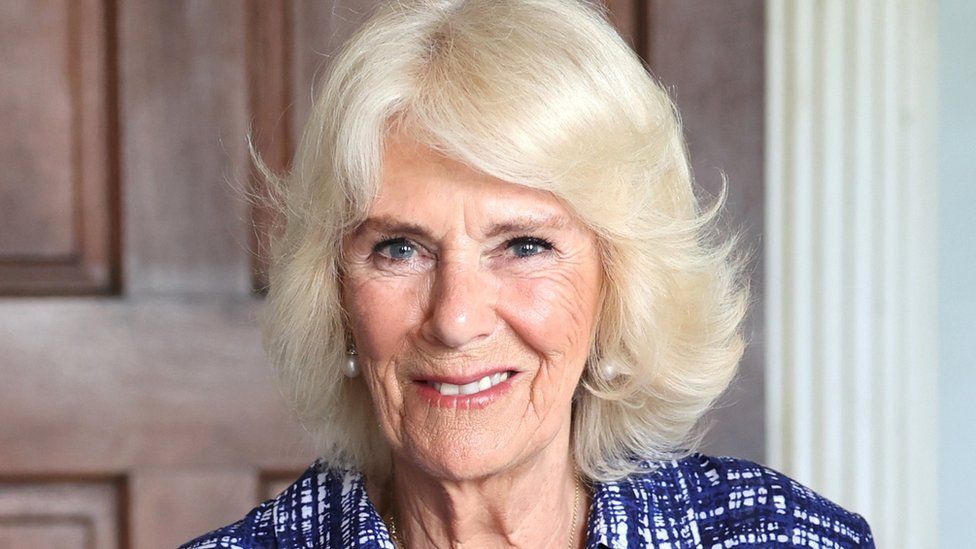Queen Camilla will buy no more real-fur items
- Published

Queen Camilla's stance on real fur is the latest example of royal sensitivities over animal welfare
An animal-rights group has welcomed a commitment from Queen Camilla that she will buy no new fur products.
People for the Ethical Treatment of Animals (Peta) received a letter from Buckingham Palace, saying the Queen "will not procure any new fur garments".
"This comes with the Queen's warmest wishes," the letter adds.
But the International Fur Federation says the royals "should not be placed under pressure from animal activists".
Peta, which says real fur is cruel and unnecessary, said it would be "toasting Queen Camilla with a glass of the finest claret".
"It's right and proper for the British monarchy to reflect British values by recognising that fur has no place in our society," managing director Ingrid Newkirk said.
Wendy Higgins of the Humane Society International also backed a switch to fake or "faux" fur: "Queen Camilla's decision to 'go faux' reflects the morals and mood of the British public."
The Queen's move follows in the footsteps of Elizabeth II, who, in 2019, indicated she would acquire no new real-fur products.
That did not mean she stopped wearing existing items, though - and the Queen's letter to Peta does not rule this out either.
Mark Oaten, chief executive officer of the International Fur Federation, rejected the criticism of real fur.
"It is the right of everyone to decide what to wear," he said.
"Many people still buy fur as they prefer to wear something that's natural and sustainable, unlike plastic-based fake fur.
"We hope the Royal Family consider the environment when they decide what to wear - but freedom of choice is the key issue."
The Queen's move away from buying real fur is the latest royal response to concerns about animal welfare:
The "Coronation roll", the traditional handwritten record of the Coronation, presented to the King and Queen this month, was produced on paper rather than parchment made from animal skin
Royal residences do not serve foie gras, made from duck or goose liver, which campaigners say involves cruelty to animals
In the Coronation service last year, the oil used for anointing the King was animal free for the first time. Previous versions included civet oil, from the glands of the small mammals, and ambergris from the intestines of whales
The Queen also faced sensitivities over what she wore at the Coronation, with a diplomatic decision not to use a crown containing the Koh-i-Noor diamond, which has had rival international claims to ownership.
Earlier this year, actor Stephen Fry called for an end to the use of real fur in the bearskin caps worn by the King's Guard, who are seen on duty outside Buckingham Palace.
The Ministry of Defence said the bear fur used was from "legal and licensed hunts".
- Published3 May
- Published3 March 2023